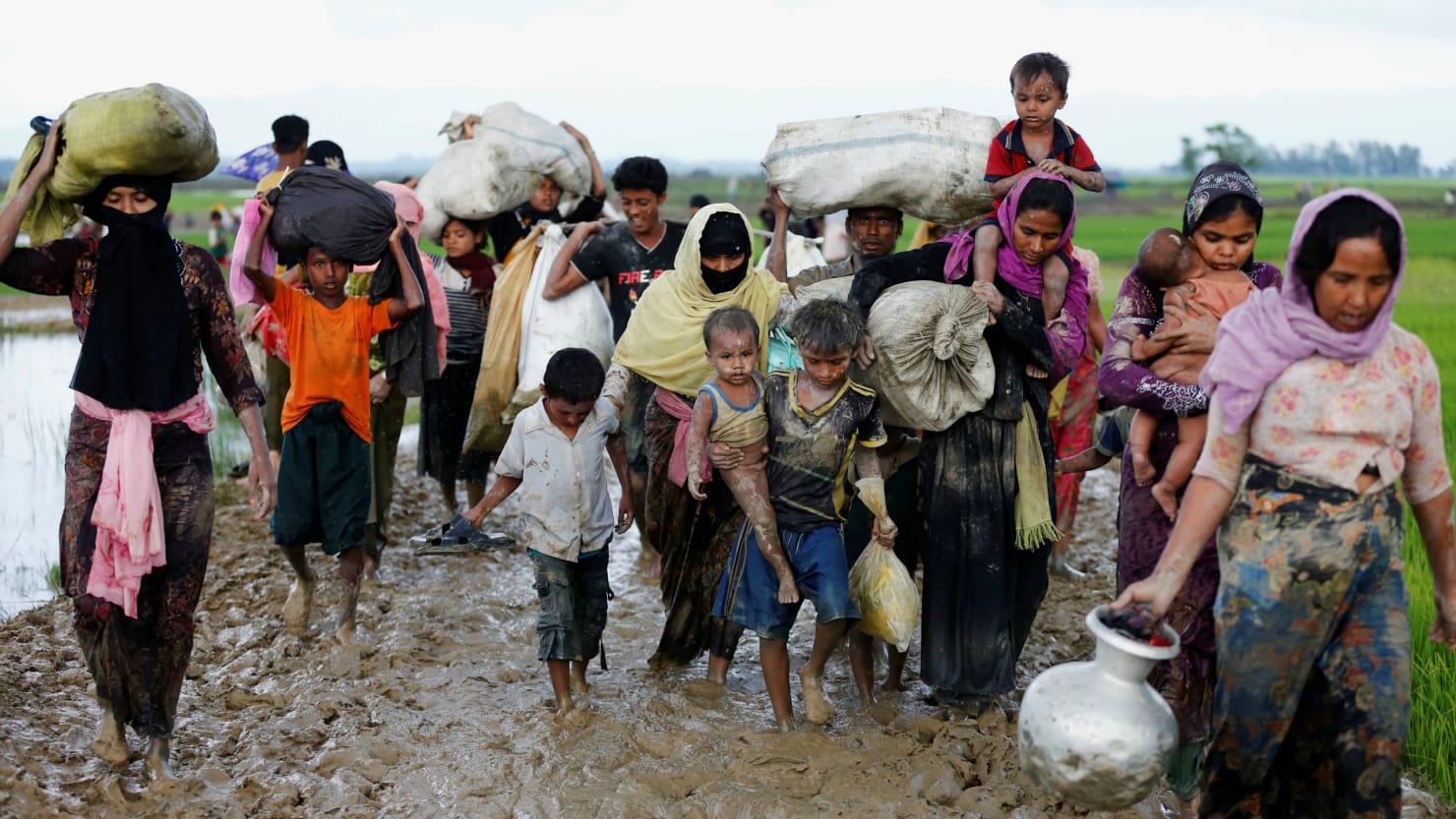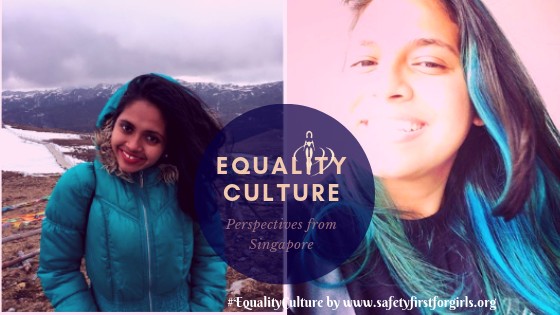Security Threats of Rohingya Refugees Fleeing Homeland
By Shucheesmita Simonti
 |
| Photo Source: The Daily Beast UN: Nearly 60,000 Rohingya refugees flee Myanmar Violence |
One of the factors a country's economy depends on is human capital. If you don't provide women with adequate access to healthcare, education and employment, you lose at least half of your potential. So, gender equality and women's empowerment bring huge economic benefits. Michelle Bachelet
"After my husband died, there was not enough food. My son and I just had one meal a day. We suffered so much. So we decided to escape our country, thinking that we will find peace elsewhere. When I was on boat, 400 of us were cramped onto the boat. The food and water quickly ran out. The propeller was broken and there was no fuel for the engine. Then the smugglers abandoned us. We were left floating at the sea. We had nothing to eat. Whenever there was a passing fishing boat, people swum asking for help. Some of them drowned. I didn‘t want to leave my country, but it was in turmoil.
Wherever we go, we find no peace. Many children died during the journey. I was scared my son would die too….4 months at sea we feared we would never reach land again. No country wanted us. We weren‘t allowed to talk, even when our boat was sinking. One day I saw helicopter and planes. I was so happy. I thought they were coming to rescue us. But they never did. When it rained, we were drenched. And when the sun rose, we roasted. I am still scared now. I don‘t know what will happen to us. I left my country to avoid persecution. But here also it is difficult. I pray that people would come to help us." - Kasuma Hatu
Noor Jahan, who has lived in Kutupalong Refugee Camp in Bangladesh since 1992, in an interview with UNHCR expressed her grievances about earning a livelihood and also described the conditions of the refugee camp:
Our main limitations in the camp are that we cannot send our children outside to study. In my old shelter there was no proper roof and privacy. So I built a clay wall. Because the roof leaked the wall collapsed when it started to rain. In the old hut we all had to sleep together on one mat and there was no ventilation. I don‘t see any opportunities here in the camp.
This article is extracted from the Research paper titled 'Gender Based Violence and Subsequent Safety Challenges experienced by Rohingya Women' in Chapter 3 of the Safety Report by SAFIGI Foundation 'Safety First for Girls'.
The Safety Report by SAFIGI is a two-fold Open research on 'Core Issues Affecting Safety of Girls in the Developing World.' The first part of the Safety Report is a Research Paper. The second part is a detailed Data Analysis.
The Safety Report Research paper is titled: 'Core Issues Affecting Safety of Girls in the Developing World.' The paper starts with an abstract before focusing on subjects in the key regions of Africa, Asia, and the Americas. A total of 7 Research papers make up the safety Report (sans the introduction and conclusion), including:
- The psychological effect of mass sexual harassment on girls in Egypt (P.24) by Heba Elasiouty.
- Safety concerns in relation to social media: Growing up female in an increasingly digital world (P.45) by Karin Temperley.
- Psychosocial challenges faced by parents raising children with physical disabilities in Oshana region (P.68) by Misumbi Shikaputo.
- Gender-based violence and subsequent safety challenges experienced by Rohingya women (P.119) by Shucheesmita Simonti.
- LGBT policies and overall safety in Brazil (P.141) by Alinne Lopes Gomes.
- Silent voices‘: Violence against the female body as consequence of machismo culture (P.177) by Steffica Warwick.
- America‘s Public Policy on Sexuality: The Repression of Girls in Vulnerable Populations (P.208) by Dr. Christina Sisti.
The Safety Report Data Analysis is titled: 'Core Issues Affecting Safety of Girls. Results and Outcomes based on Zambia, Egypt, USA, Tanzania, South Sudan, and Namibia.'
SAFIGI Outreach Foundation Ltd, a volunteer-based and youth led NGO registered in Zambia, implemented the Safety Report in order to understand the multifaceted concept of safety and how it applies to the female gender in diverse settings. And therefore, further prove safety is intrinsic, and that vices in society stem from an intimate level of the human being before its manifestation. This way, when we create safety solutions, whether it be in a developing nation, conflict zone, refugee camp, or patriarchal society, the problem is resolved from a deeply rooted cause. Such that, we treat the disease itself and not mere symptoms.
This study is as a result of collaborative effort pursued in the spirit of volunteerism via UN Online Volunteers.


Comments
Post a Comment